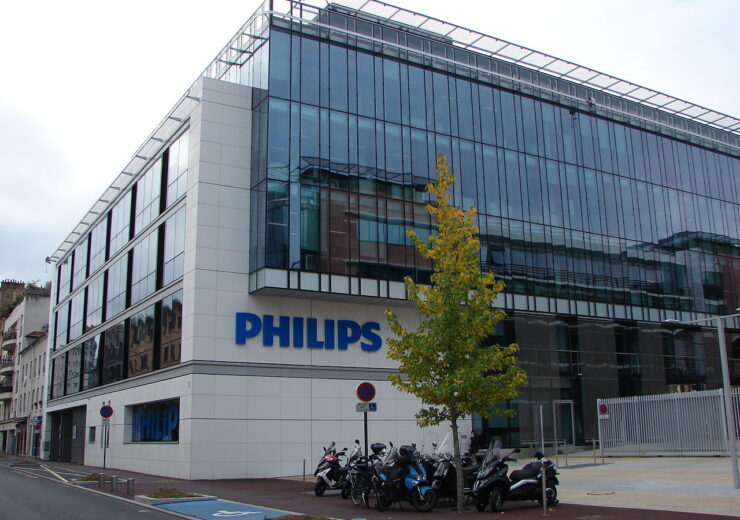Philips aims to mitigate the potential health risks related to the PE-PUR sound abatement foam component in the devices

The headquarters of Philips France in Suresnes. (Credit: Copyleft/Wikipedia.)
Royal Philips is set to repair and replace certain sleep and respiratory care devices, which were recalled by the US Food and Drug Administration (FDA) in June this year.
The move is aimed at addressing potential health risks related to the polyester-based polyurethane (PE-PUR) sound abatement foam component in the devices.
More than half of the affected devices are being used in the US, and most of them belong to the first-generation DreamStation product family.
Philips has received the US FDA authorisation to rework on the affected first-generation DreamStation devices.
The repair works, which include replacing PE-PUR sound abatement foam with new material, is expected to commence this month and be completed in nearly 12 months.
In addition to the repair, Philips has started replacing few affected first-generation DreamStation CPAP devices in the US with DreamStation 2 CPAP devices.
Philips said that it will be in contact with the FDA in relation to other aspects of the recall notification and mitigation plan in the US.
Also, the company intends to expand the repair and replacement programmes to other countries and the majority of its markets by the end of this month.
Royal Philips CEO Frans van Houten said: “We fully recognise that the timeframe for remediation of the affected devices places patients in a difficult situation.
“We are mobilised to deliver a solution to them as fast as possible. We have significantly increased our production, service and rework capacity, and further intensified our outreach to our customers and their patients.
“We urge patients with affected active devices to register these on the dedicated recall notification website.”
In a separate development, Philips has closed the sale of its Domestic Appliances business to China-based Hillhouse Investment, for a total of around €3bn.
The company has initially signed an agreement with Hillhouse Investment for the sale of its business, in March this year.
